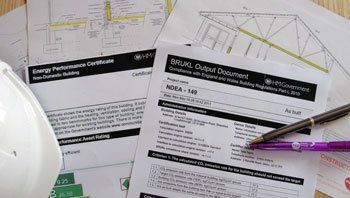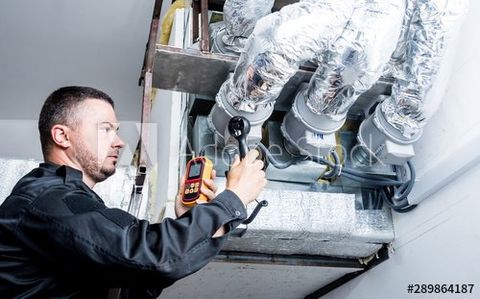
Commercial
From 1st October 2008, all non-domestic buildings on construction, sale and rent require a Non-Domestic Energy Performance Certificate (NDEPC) and a Recommendation Report (RR). This information is designed to help owners and occupiers make their building more energy efficient and allow potential buyers and tenants to compare the energy performance of different buildings.
To see when you do and don't need an EPC, click below
To see when you do and don't need an EPC, click below
Display Energy Certificates (DECs) are designed to show the energy performance of public buildings. They use a scale that runs from ‘A’ to ‘G’ - ‘A’ being the most efficient and ‘G’ being the least.
To find out more about DEC's, click below
Learn More
To find out more about DEC's, click below
An SBEM assessment is now a mandatory requirement for all new commercial properties with a size greater than 50m2. It can also be the case that an extension or a renovation project may need an SBEM calculation as well, but this changes in different circumstances.
Learn More
To find out more, click below
The Energy Savings Opportunity Scheme (ESOS) was introduced to incentivise large UK based businesses to implement energy-saving measures and help to cut UK carbon emissions. The scheme requires affected businesses to carry out energy surveys accompanied by cost-effective recommendations to reduce energy demand and improve energy efficiency. It’s a mandatory requirement for organisations that must comply to produce an audit over a 12-month period once every four years.
To find out more about how we can help, click below
Learn More
To find out more about how we can help, click below
Anyone who owns or manages an air conditioning system that is over 12Kw is responsible for obtaining an assessment of their operating conditions, and ensuring they receive a regular service, inspection and maintenance check.
To learn more about this regulation, click below
Learn More
To learn more about this regulation, click below
Achieving a good level of air tightness is important for the energy efficiency of the building. The benefits of improved insulation and more energy efficient heating systems are lost if warm air can leak out of the building and cold air can leak in. Poor air tightness can be responsible for up to 40% of heat loss from buildings.
Learn More
To understand more about Air tests, click below
If you own, occupy, manage or have responsibilities for non-domestic premises which may contain asbestos you have the legal duty to manage the risk from this deadly material.
Learn More
To find out more about Asbestos, click below
The potential punishment for failing to meet your duties in relation to fire risk assessments is a prison sentence of up to two years, as well as an unlimited fine.
Learn More
To find out more about your responsibilities, click below
Beond were formed in 2003 following the electricity market deregulation and at that time the organisation was called Buy Energy Online (BEO). The core service of BEO was an online reverse auction pricing engine that aimed to increase pricing competitiveness for small and medium enterprise (SME) businesses in the UK.
Learn More
To see more about Beond, click below















